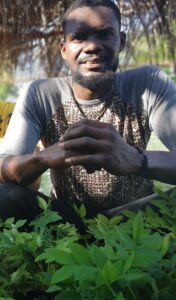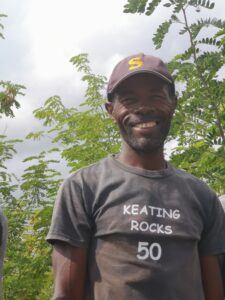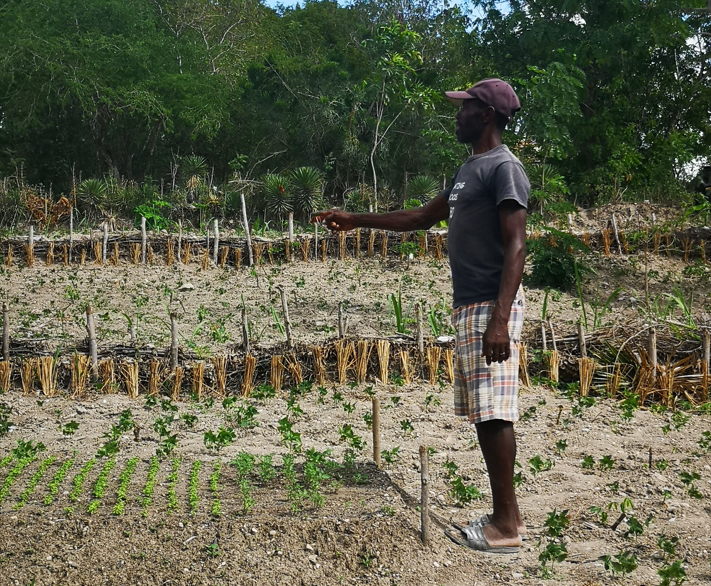Haiti – Thousands of trees have already been planted, and more are germinating or ready to be planted by many helping hands: from school children to Haitian farmers in one of the driest regions in the country.
In Haiti, Join For Water continues to work in the catchment areas of three rivers: the Denisse, the Catinette and the Moustiques, located in a very dry region in the northwest of Haiti. Nature in this region has been severely damaged and needs a boost to get out of a downward spiral. The population is growing, and so is the need for sufficient food: more trees are being felled to create fields. But too intensive farming in a dry climate leads to soil that hardly contains any nutrients. In the wet seasons, it rains very hard, but the water can hardly penetrate the hard, dried-out soil.
In this zone, Join For Water and its partners strive to restore and protect ecosystems. Reforestation is an important asset and management committees must ensure that the reforested areas are preserved. Much attention is also paid to environmental education, for the communities, management committees, schools and governments.
2 people who literally have their feet in the field talk about their daily efforts.
Marc Jean Mathieu, environmental educator at 3 schools

” I am an educator on the theme of ‘environment’ in 3 schools in Passe Catabois. I work for the Moustiques River Basin Committee. I have 3 other colleagues and together we work in 12 schools.
During the holidays, I planted seeds in bags filled with soil with the pupils. I live 5 minutes from the school and I went to water them every day, because it is a delicate job. In this way, I have expanded the tree nursery here.
We planted many fruit trees: mango, cherry, tamarind, soursop… Together with the river basin committee, we looked at which trees to choose. We started with 1000 trees, 900 of which made it. In the next phase, we will plant another 1500 trees.
The students take trees with them to plant at home, but we also get support from some people from our village who own a plot of land. We will then be allowed to afforest those plots; we can already start with a plot of 100 and one of 40 trees. That is great, so the children can also see the evolution on these parcels of land.
The GIRESECALM project provides for the planting of 150,000 seedlings, for which 138 people are working in the tree nurseries, including 86 women.
I am happy with this job, I am an agronomist by training and I can put my knowledge into practice. I feel useful and I like working with children; I am also a teacher.
The integrated water management approach works for me. Because through our interventions, the quality of the water will improve and so will our health. And so we protect not only the environment but also our lives.”
Clodius Desinor, farmer and chairman of the management committee of Lake Erné

“We notice a real change in the seasons here. This year we are experiencing a very long drought. We are impatiently waiting for the rain. Erosion is also a big problem here: when it rains, it rains hard. The soil is then washed away, along with important nutrients for growing vegetables. So it becomes impossible to do any farming on these plots.
Join For Water and its partner ODRINO have shown us how to stop the soil from being washed away. This can be done with simple interventions, from nature itself. Stones and the right plants keep the soil firmly in place. Many inhabitants participated in the community work, which creates a nice dynamic. We work together with Nicolas, the agronomist of ODRINO. He monitors the yield of our parcels and in this way we are also a pilot and demonstration site. Together with our community we will continue to maintain the plots.
Today I can already start my agricultural activities, because the soil in which I cultivate will not be washed away. I have already started planting peas and soon I want to grow tomatoes as well. With the proceeds from the harvests, we can pay for the school, or buy medication for our children.”
Photos: Céline Jacmain

